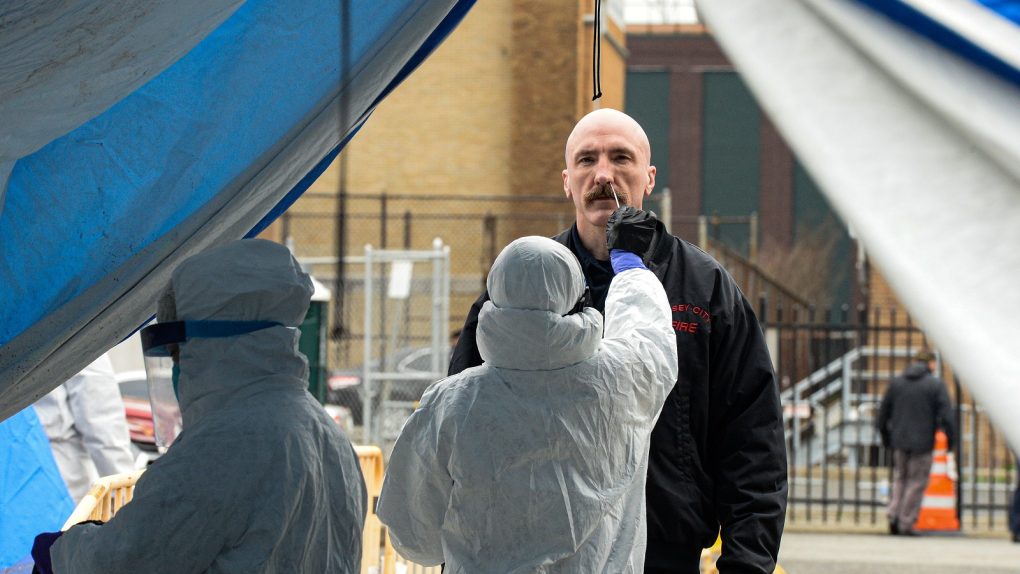- The race to develop effective coronavirus treatments that can cure COVID-19 yielded more promising results.
- Regeneron announced that its monoclonal antibody compound was effective and well-tolerated in a Phase 1 trial focused on treating COVID-19 outside of the hospital.
- The company said that the new medicine helped reduce viral levels in confirmed coronavirus patients and alleviated symptoms faster than standard care.
- The REGN-COV2 drug had the best effect on patients who were slow to mount their own immune response against the virus.
Humanity’s hopes of beating the novel coronavirus pandemic aren’t tied solely to vaccines. We’ll soon find out whether any of the promising vaccine candidates that have reached Phase 3 can block COVID-19 or reduce the severity of the illness. But even if they all fail, hope isn’t lost. First of all, safety measures can reduce the spread of the virus, but more people will have to be willing to practice social distance and wear face masks in public. Precautions aside, not all scientists looking to beat COVID-19 have focused on vaccines. Many companies are trying to repurpose existing drugs as coronavirus therapies, and many more have devised new meds engineered specifically to beat COVID-19. One of the candidates in the latter category combines the best aspects of vaccines and standard care, and it seems as though it was quite effective in its Phase 1 trial.
We’ve talked about monoclonal antibody drugs several times before. These are meds that deliver cloned antibodies that can neutralize the virus. The antibodies can be based on human or animal antibodies that have been engineered to work on humans. Some of these drugs actually include more than one antibody, in order to account for potential mutations of SARS-CoV-2 concerning the spike protein that latches onto cells.
The neutralizing antibodies injected into a patient’s system can act a lot like plasma transfusions, but they might turn out to be even more effective than plasma. With plasma, one must hope that the donor developed plenty of potent antibodies that can bind to the virus and help the recipient recover faster. But monoclonal drugs already use the strongest possible antibodies in a greater concentration.
Another purpose of monoclonal therapy is to provide vaccine-like protection to patients who have not been infected with the novel coronavirus. As long as those antibodies circulate the bloodstream, they’d be able to recognize the virus and neutralize it. That means taking one of these drugs will actually give a person temporary immunity to COVID-19.
Regeneron is one of the pharmaceutical companies testing monoclonal drugs for COVID-19, and REGN-COV2 is a two-antibody cocktail involved in several clinical trials. Regeneron published on Tuesday results from one of its trials concerning patients diagnosed with COVID-19 who were treated at home rather than in a hospital.
The pharma company recruited 275 patients for the randomized trial, dividing them into three equal cohorts including placebo, high-dose (8g of REGN-COV2), and low-dose (2.4g). The scientists then tested the patients for COVID-19 antibodies to see whether the immune system had started clearing the infection. They found that 45% of patients had antibodies (seropositive), 41% did not develop any (seronegative), and 14% had inconclusive tests.
Regeneron has not released the full study for this particular trial, and it’s not clear from the press release which antibodies were being tested for. It may take days or even weeks for certain COVID-19 antibodies to show up, and some antibody tests aren’t always accurate — this could explain the “other” category.
Approximately 56% of the patients were Hispanic, 13% were African American, and 64% had one or more underlying risk factors. More than 40% of them were obese. The average age was 44 years, and the trial included 49% men and 51% women. Regeneron found that REGN-COV2 helped seronegative patients the most, suggesting that monoclonal antibody therapy might work in patients who can’t mount a rapid immune response on their own.
In the placebo group, seropositive patients needed 7 days to clear symptoms compared to 13 days for seronegative ones. Seronegative patients on 8g of REGN-COV2 stopped reporting symptoms after 8 days, and those who got 2.4g of the drug needed just 6 days to clear symptoms.
REGN-COV2 helped seronegative patients reduce viral loads significantly by day 7, regardless of dose. The scientists found that the higher the initial viral levels, the greater reductions were observed seven days after the REGN-COV2 treatment. The number of hospitalizations was limited, and 10 of the 12 visits were from the seronegative group.
When it comes to side effects, the company says there were serious adverse events in two placebo patients, one in the low-dose and one in the high-dose patients, without explaining what they were. There were no deaths in the trial.
A Phase 2/3 trial will include 1,300 patients who will be followed for 29 days, with PCR tests to take place every 2-3 days during the Phase 2 portion of the trial.
The company is also studying REGN-COV2 on hospitalized patients (Phase 2/3), and it’s part of the UK’s RECOVERY trial of hospitalized patients (Phase 3). A separate trial for COVID-19 prevention in household contacts is also in Phase 3.
Regeneron said that it plans to “rapidly” discuss the trial results with regulators, including the FDA. There’s no telling when the drug could be approved for emergency use, however. Even if it does become available for COVID-19 treatment, REGN-COV2 is currently given as an intravenous infusion, which isn’t an ideal way to treat any illness outside of the hospital.








